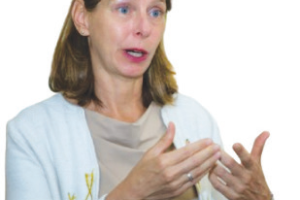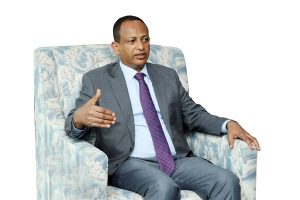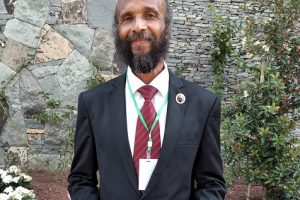
Once there was a female student at Jijiga University who spent five years of her life struggling to make it in her education and lead a decent life. As she scored very low in her courses she failed repeatedly and was readmitted five times, but to no avail. When she was dismissed for good she went to her last resort, one of the female instructors in the University.
The woman who came to her rescue to examine her problem from inside out and give her final solution was Dr. Etaferahu. Thanks to her expert treatment that repeatedly failing student has finally graduated with good grade and is now an employee in a government office. Though other staff of the University had a good role as scholars, it was a woman who went deeper and more specific to address the underlying problem of this student in trouble.
The bottom line issue here is that gender inclusion can assist tremendously in addressing a huge volume of problem at national level. But as reports and research justifications clearly revealed women inclusion and equal participation in Africa is far below the forecasted agenda of African Union and other institutions who have been working on the issue of gender. Since the patriarchal issues related deficiencies are still prevailing in the continent, females are away from various spaces as their male counterparts. One could raise the educational values as a basic criterion of competition. That is healthier point. But those who win over lots challenges and succeeded in education are also ignored from inclusion still by seeking another criterion.
Today’s Herald Guest is Etaferahu Hailu. She had a time with Herald regarding her educational and personal background.
Etaferahu was born to a family of merchants in Addis Ababa. As the second child in a family of 8 children she took on more household chores alongside her education. After completing her secondary school education despite all these challenges she joined a Diploma program the Language Department at Kotebe College of Teachers Education. I studied Amharic Language and Literature. But after graduating with a Diploma, she joined Addis Ababa University for a Degree Program and graduated with a cumulative GPA of 3.82, standing the first top scorer in the department.
During her brief interview with The Ethiopian Herald she has explained about some of her life circumstances that she passed through with courage and struggle, how she helped other female students in University to succeed in their career as well as how interventions like affirmative actions, gender inclusion and mainstreaming can help women cope with challenges that hold them back and become effective in their education and career. Have a nice read!
You look beautiful and you are top in your education. So how do you challenge the difficulties that may face you as female in campus?
The reason for living in this world for me is education. There is nothing that interests me than studying and attending classes. There were many challenges, but I never exposed my weakest side to others. I was very careful on that. If you keep your weak side unknown to others no one can try to challenge you. Thus the key is in your hand. For this strength and personality, my mother takes the dominant share. She is an incredible woman I ever know. She is the source of my strength and commitment. Thus I reserve myself from people who could take me to a different direction. I prefer to be alone than to be with students who had some other goal.
How did you manage the overall circumstances that you encounter after employment?
My instructors were eagerly waiting for my employment as an assistant lecturer at the university. But at that time the Ministry of Education announced that the mandates of universities to employ teachers were overtaken by the ministry. Thus, the Ministry assumed the task of assigning teachers to Universities. The head of my department at Addis Ababa University advised me to confront the ministry. But since such things need some guidance to navigate the process, I can’t continue. Consequently, the ministry assigned me to a job post at Jigjiga University.
When I shared this news to my family, they warned me against it. They [tried to persuade me to stay here] and promised me to cover all the expenses for my Master’s Degree study and to look for a job. But I needed independence and wanted to stand on my own. Even though it was my first time to be away from family and Addis Ababa, I strongly decided to go. At that time, i.e around 2008 the road to Jijiga was very risky. It was impossible to reach the city in a day. I was forced to spend the night in Harrar. I was feeling scared and never slept the whole night.
When I arrived there, everything was new to me. The weather was too hard to adapt. It is too hot. Even the water is salty. The next day I got into the university. It was new. Its construction was not complete. The department that I assigned was not open at that time. Things were pushing me to lose my hope. But I should be strong. I faced everything and started to adapt step by step.
After some time, the department became functional. Then I was selected to be a director of the Gender Office. There was no one except me. Everything like writing, planning, implementing and even circulating papers lies on my shoulder. There were lots of cases coming to the office. I was the caretaker of female students’ issues, and that responsibility brought me immense happiness.
What unforgettable incidents could you mention while you were in that directorate?
I received many appalling stories from female students about harassment, abuses, and inaccessibility of necessary sanitation materials which were my day-to-day stories sourced from the girls. The most dominant challenge of the girls was the scarcity of sanitation materials. Thus I planned something to address this problem. I asked each instructor to contribute 20 birr. I raised this money by going to each teacher face to face. I then screened the girls who couldn’t afford sanitation materials and began providing 50 birr each month to those selected. This initiative benefited many girls. In the book entitled Successful Women, I read about a student who graduated from Physics department. She was the top scorer with grade point average (GPA) of 3.9. She gave a lofted credit to the gender office since the support she got from the office was very basic in covering her costs. She stated that without that financial assistance, she wouldn’t have been able to succeed. I felt proud knowing that I played a role in the girls’ achievements which is my superiority in life.
Another challenge I encountered was about readmitted students who were sent home for months. I noticed that many girls who left often never returned, some being forced into marriage or relegated to household duties. I raised this issue with the academic president, suggesting it would be better to allow these girls to stay on campus and attend makeup classes. Although the president initially expressed some concerns related to budget and accommodation, he consulted with various offices and ultimately allowed the female students to remain and take courses. Many of them achieved even better grades than before.
As the gender office director, I was invited to a meeting in Addis Ababa organized by the Ministry of Women and Children. I raised the issues faced by female students at my university, and after hearing about these challenges, the ministry promised to allocate 400 birr for each needy female student.
Let me add one more story. There was a mentally disordered student. She was scoring low grades and she spent five years in the campus through readmission. Finally she scored a dismissal result. When she came to me, I asked her story and treated her with compassion. She told me that she was sexually assaulted by her uncle. She didn’t share this story to anyone it was her painful experience in life. Then I took the case to the academic vice president. I said we took 5 years from this girl, and now we are dismissing her. She had this problem. So is that fair for this young female? Then he worried and ordered the department to arrange a makeup class for her. Then she graduated with good grade. Now she is good and working in a governmental office. In this regard, I would like to acknowledge JJU University’s higher officials for their commitment to addressing gender issues.
How did you manage to pursue your career to the level of PhD?
I worked there for two years before returning to Addis Ababa University to pursue my MA. I graduated as the top scorer in my department with a CGPA of 3.94. Shortly after, I got married and welcomed a baby boy into my life. Despite the new responsibilities, I continued my work with great passion. Two years later, I returned to Addis Ababa University to pursue my PhD in Linguistics. I balanced family responsibilities while managing my studies, research, and meetings. During this time, I had the opportunity to travel to Norway and Finland. These trips, supported by Norad, helped me finalize my PhD during my stay and deepen my knowledge in my field.
After earning my PhD in linguistics, I published articles on international journals and local journals. Currently, I am a researcher at the Institute of Ethiopian Language and Culture at Addis Ababa University, where I am involved in various research projects.
What are you doing as a female researcher regarding female students?
In the current status of Ethiopia, I have found out that the project on females’ boarding school is very important. Females can have time for study; they are away from any form of sexual harassment which can even be made on the streets. But at the same time, these girls need life skill training. Thus I have researched on the relevance of this training to the girls and submitted my proposal to the concerned body. Thus if it is influential the measure could start to be taken.
Do you think female students are still treated unfairly or considered unequal?
Definitely! Female student are still pushed back from school, positions, and opportunities. Policies are simply there for the paper. The truth is far from the promise. But I can say that things are progressively changing. A good number of women are taking some influential spaces.
What do you think would be the solution then?
We need a sustainable effort and committed work on that. Females should come to the front line so as to be good models for the coming generation. This will not be solved by the only effort of women. Men should also say no to the discrimination and biases of females. Together we can gradually change the gap and assure gender equality for equal access and success.
Do you think gender inclusion in different spaces is relevant for the nation?
Sure. Women are more committed, disciplined, hard workers, and loyal comparatively. I am not saying males are not. But women are very committed. Thus involving them in a position means having these traits in that position. This is very important for building the nation.
The issues of gender in Ethiopia and Africa are not the ones that could be achieved through extremism. The culture, the economy, and the social background we have did demand the effort of the males in the issues of females. The equal inclusion of women with men in every space is not done for the benefit of the women but rather for the inclusive harmonious destiny of males too. Thus, this point should be the assignment of males too. That way we can bring a nation that is built with equal effort and satisfaction.
Thank you very much for your time!
Thank you!
BY MEKDES TAYE (PhD)
THE ETHIOPIAN HERALD SATURDAY 26 OCTOBER 2024




